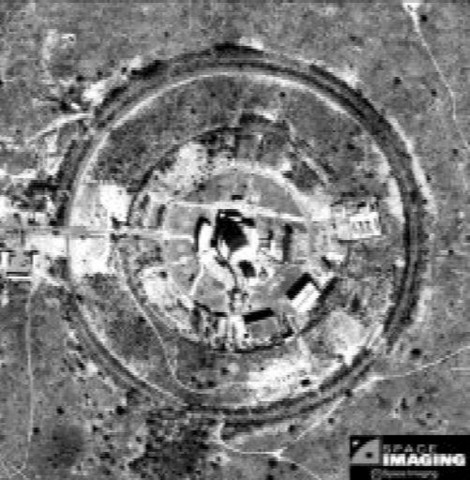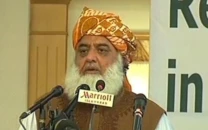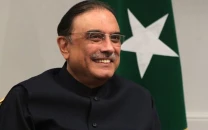‘Pakistan’s nuclear deterrence at risk from selectivity’
Expert seeks to justify government stance against FMCT negotiations.

‘Pakistan’s nuclear deterrence at risk from selectivity’
Pakistan’s credible nuclear deterrence will be eroded if world powers continue to assist India with the development of advanced nuclear technology, according to Dr Maria Sultan, a security analyst and the head of the South Asian Strategic Stability Institute (SASSI).
Sultan suggests that the civilian nuclear assistance being provided to India – which she suggests is being provided not just by the United States but also by Britain, France, Japan, Russia, Australia, Canada and New Zealand – may very well result in greater nuclear proliferation.
“The new trend of selectivity for access to nuclear technology based on commercial interests have increased the possibility of proliferation,” said Sultan in an interview with The Express Tribune. “It has resulted in the creation of a new category of ‘nuclear weapon states,’ a contradiction of the founding principles of the non-proliferation regime and a challenge to international security.”
SASSI is conducting a three-day seminar on nuclear security issues in South Asia, with a focus on the Fissile Materials Cut-off Treaty (FMCT), which Sultan considers an inadequate safeguard against nuclear proliferation.
“The limited scope of the treaty offers India the opportunity to build strategic reserves of [nuclear weapons] stockpiles, and widen the disparity with Pakistan,” said Sultan.
Under the proposed FMCT, states around the world would be prohibited from expanding their existing stockpiles of nuclear materials. However, this treaty is limited to weapons-grade uranium and plutonium exempts nuclear material being used for research and for power generation.
The 65-member Conference on Disarmament has agreed to begin work on the FMCT, to negotiate a final treaty that is acceptable to all countries. Pakistan, however, is the only country in the 65-member body to oppose even beginning negotiations and has repeatedly blocked any efforts to make progress on the FMCT.
According to Sultan, the treaty would alter the strategic nuclear balance in South Asia in India’s favour. She seemed to be supportive of the government’s stance to block even the start of negotiations, but was unable to offer an explanation as to why discussing the treaty on an international forum was a bad idea.
Published in The Express Tribune, March 21st, 2011.

1724319076-0/Untitled-design-(5)1724319076-0-208x130.webp)

















COMMENTS
Comments are moderated and generally will be posted if they are on-topic and not abusive.
For more information, please see our Comments FAQ